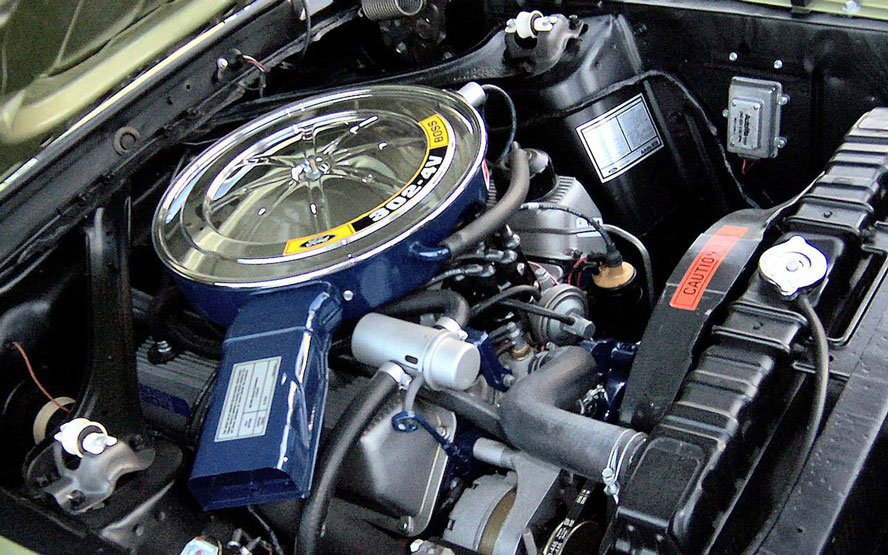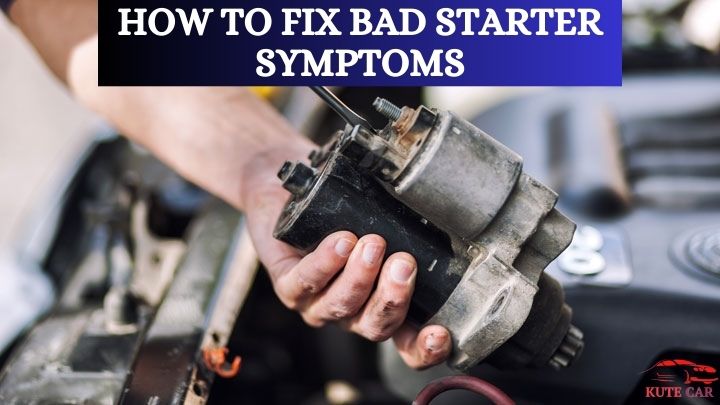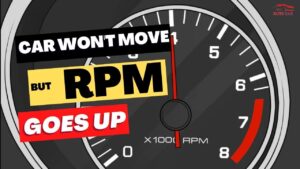When you turn the key on and take it into position to begin the vehicle, car starters are powerful electric motors that drive your engine. A motor with an attached solenoid is included in this system. The solenoid’s a device that takes power from a battery and ensures it gets to its starting motor. In addition, it causes the starting gear to push forward and mesh with the teeth on the flywheel in the engine.
Over time, starters are going to wear down or fail. But on their way out, they usually come with a few warning signs, and mechanics will ask for them when you go to a car repair shop. They’ll be able to diagnose the problem with your answers. Let’s discuss some Bad starter symptoms:
Top 3 Bad Car Starter Symptoms
Anything that points to a starter failure symptoms could be anything from odd noises to leaking oil. Here are some faulty starter symptoms that can help clue you into the problem:
1) Freewheeling When You Start the Engine
When you try to drive the engine and the only sound coming from the starter is a groan, you are freewheeling. What’s the explanation for this? The reason is usually that a malfunctioning car starter does not interact with the flywheel. The starter or engine might need to be replaced if you don’t address the issue right away.
2) Oil Has Soaked the Engine
Sometimes the engine starter may be soaked by an unexpected leak in your engine oil system, which will cause it to malfunction. You may have to repair the leaks in the fuel system and replace malfunctioning ignition systems so as not to cause additional damage.
3) Engine Won’t Start
An obvious sign of a bad starter is that your car won’t crank or start.The engine may not start for a variety of reasons, including defective batteries, alternators, or ignition switches. Other signs, like a quick clicking for an inadequate battery, are also frequently associated with them.

You’ll probably hear only one click for a bad start. It’s probably because the solenoid inside the starter’s motor attempts to connect, but it can’t work with its internal components.
How Do You Diagnose Bad Starter Symptoms?
1. Test the Car Battery
The batteries fail more often than the starters. A weak or dead battery or faulty lead wire may be the cause of any problem with your starter. Make sure the battery is strong and chargeable by testing it. If the battery is low, it must register a minimum of 12.6 V. You should re-energize your battery and test once more.
2. Adjust the Transmission
Don’t you start your automatic transmission in park gear? Try to start your car in neutral mode before you get worried. If the vehicle starts in neutral mode, an electrical problem may be preventing your car from jumping out of parking gear, such as a defective neutral safety switch.
3. Tap the Starter
If you gently tap on it, you can try to awaken the starter. That’s because gentle tapping brings each electrical component in the starter in contact with each other and may help power up the weak car starter. But you must contact the mechanic as soon as possible because it’s just a temporary fix.
How long can you drive with a failed starter?
There are many starters of the same. Some will last up to 200,000 miles, while others will only have their odometers within 30,000 miles before they need replacing. If starting is not working, there are certain indicators to look out for.
There are several warning signs that you should be careful about when the starter isn’t working. Low batteries and malfunctioning alternators will also be seen in some of the symptoms mentioned earlier.
Sometimes a full charge of the battery will help eliminate it as a factor, so keep that in mind. While getting a lot of additional miles with the failure starter, it’s best to replace them immediately when you find out they are malfunctioning. It will require a long investment, yet at last it will end.
What Happens if you don’t repair a failing starter?
A few things might go wrong when you don’t have time to fix or replace starters. The largest range of possibilities includes but is not limited to:
- Electrical system damage
- Dim lighting
- Your transmission or engine has been damaged. Battery drainage
- The vehicle refuses to start
If the starter fails, it can leave you stranded and damage your other systems, leading to more expensive repairs. You’d better avoid getting stuck in a place where there’s no way to reach the garage and car that won’t start. Consequently, you must do so early and seek professional assistance in dealing with the problem.
What happens to a car when the starter goes out?
A number of problems may result in a bad starting position, such as:
- Vehicle cranks slowly.
- Vehicle’s not starting at all.
- There are starting problems all the time.
- The lights are out in the cabin when you’re trying to start a car.
- You will hear a grinding sound when the vehicle starts or begins to drive.
- From under the hood there’s a burnt smell or smoke.
- The starter’s got oil on it.
- A loose wire connecting to and from the starter
- Dirty or broken connections on the starter
- Battery corrosion
- The starter system has damaged or worn out parts
- Oil leaks
Conclusion
The problem with the Bad starter symptoms may be a real pain for the vehicle’s owner, whether you hear a grinding noise or your car’s freewheels. Also, we really want to manage that immediately. A few elements, e.g., a defective starter solenoid, an overheating framework, or a drained battery, can cause a terrible beginning, so it’s difficult to freely analyze.
FAQ Regarding The Damaged & Bad Starter Symptoms
Q.1) Are there any visual signs that indicate a bad starter?
Yes, It indicates a bad starter. These can include corrosion or harm to the starter wiring, loose or damaged connections, or a visibly worn-out starter motor.
Q.2) Can a faulty starter affect other electrical components in the vehicle?
Yes, a malfunctioning starter can cause voltage fluctuations that may affect the operation of other electrical systems, such as lights or accessories.
Q.3) Are any advanced diagnostic tools or techniques used to identify a bad starter?
It includes advanced diagnostic tools, such as a starter circuit tester or a digital multimeter, to assess the. They can measure starters and diagnose electronics.




